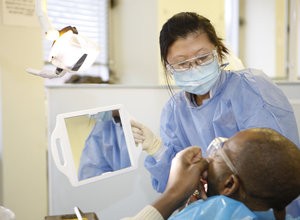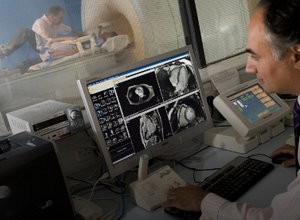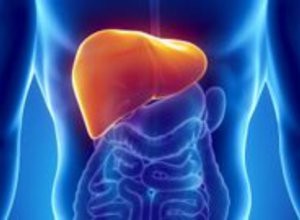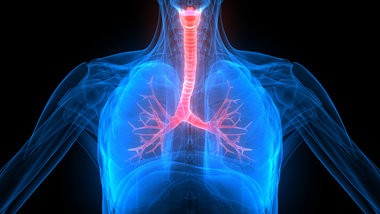
The CAG comprises of:
- King's College London;
- King's College Hospital NHS Foundation Trust;
- Guy's and St Thomas' NHS Foundation Trust (including Evelina Children's Hospital, Royal Brompton and Harefield hospitals);
- St Christopher's Hospice;
- Royal Trinity Hospice;
- Greenwich & Bexley Community Hospice;
The clinical services across the sites have a strong legacy of innovation dating back nearly 50 years, providing 24/7 integrated care across community and hospital settings. Our KHP clinical services span our five acute hospital sites and work within the community of south east London. In 2022/23 we saw 6,000 referrals to our inpatient services and made more than 5,000 community visits.
The academic 'Hub' of the CAG is the Cicely Saunders Institute, the first purpose-built palliative care institute in the world which was opened on the Denmark Hill campus in 2010. The Cicely Saunders Institute is an internationally leading centre for palliative care research being first in the UK and third in the world for palliative care research.
We are also a global leader in education and training with a growing postgraduate taught programme including PGCert, PG Dip and MSc in palliative care which aim to support the translation of research and innovation into evidence-based practice. Alongside this and with 25 current PhD candidates we are developing palliative care leaders of the future.
Aims
The CAG aims to promote clinical academic integration to ensure that the best evidence for palliative care is implemented into practice. This is supported through the delivery of high-quality education and training and activities to influence local, national and international policy and practice. The CAG is a national and international exemplar of clinical integration with patient and public involvement and equity, diversity and inclusion at the heart of activities.
The CAG pioneers the very best in palliative care and rehabilitation through its tripartite mission and integrating:
- Cutting-edge research – committed to building new knowledge and discovering new treatments through world-leading clinical, applied and health services research;
- Skilled multi-professional care – delivering top-quality evidence-based clinical care and support to patients and carers, for life and living, and death and dying;
- Innovation in engagement and education – to embed changes in policy and in practice nationally and internationally, engage with patients and public, and inspire tomorrow's leaders in the field from around the world.
The operational structure of the CAG includes an Executive group which leads and meets monthly with nine reporting subgroups undertaking activity to drive forward advances in these priority areas. To find out more, please get in touch.
Impact
The CAG is committed to ensuring that advances in digital health and data science are underpinned by accurate and representative study populations and datasets.
Through the Potential for ROutine Data to Monitor and Reduce InequalitieS in End-of-life Care (PROMISE) study the CAG is exploring how to best use 'big data', or routine health and social care datasets, to understand how available resources can be optimally used for care and to reduce inequalities. Collaboration with ARC South London has used a large General Practice dataset (Clinical Practice Research Datalink) to demonstrate the impact of the pandemic on primary care use for patients at the end of life.
Accurate data on protected characteristics is fundamental to delivering equitable services. The CAG have led an audit of more than 50 palliative care sites across the UK, providing all sites with benchmarked data on the validity of their data to inform planning for initiatives to improve data quality. The Equitable Care for All Ethnicities (ECAE) audit: A clinical audit of ethnicity data quality in UK specialist palliative care services has been submitted for review to Palliative Medicine.
Digital health is a key enabler to efficient and effective personalised care. Across services virtual wards are being used to compliment face to face care, for example, Greenwich and Bexley Community Hospice uses software to support patient and clinician POS reporting. In 2023 Guy's and St Thomas' NHS Foundation Trust and King's College Hospital NHS Foundation Trust introduced a single electronic health care record (EPIC) across all clinical sites providing an opportunity for harmonisation and inclusion of digitised treatment support tools. The CAG worked with developers to ensure that the Palliative Care Outcomes Scale was included in EPIC and further electronic health care record systems such as SystmOne. In collaboration with teams in New Zealand work is underway to apply machine learning and network analysis to palliative care outcomes data to identify whether outcomes scores can predict changes in phase of illness. Early findings, coupled with advances in digital technologies, will support increased use of digital therapeutics in continuous palliative care monitoring.
The development of intelligent digital tools embedded in national clinical database has transformed the commissioning of NHS specialist rehabilitation services. The CAG developed a robust set of tools for use in routine clinical care to identify and match rehabilitation programmes to individual patient needs, measure outcomes and demonstrate value for money. The study found that specialist in-patient rehabilitation for profoundly disabled patients is highly cost-effective, with average net life-time savings in care costs exceeding £670,000 per patient. Our tools are now incorporated into the NHS national mandated clinical database to benchmark quality and outcomes for all specialist rehabilitation services in England.
The EMBED-Care Framework is a co-designed digital intervention informed by the findings from the preceding workstreams in the EMBED-Care programme. Its intention is to empower people with dementia, family carers and practitioners to assess, monitor and manage symptoms and concerns experienced by people affected by dementia.
Personalised, individualised care and assessment is at the core of all palliative care. The CAG has led research to develop, implement and evaluate instruments that measure outcomes that matter most to patients and those close to them. Taking a mind and body approach is integral.
Some examples of recent developments across the CAG include:
To help patients, families and staff plan for the future the CAG developed a suite of resources called Let's Talk: Advance Care Planning to equip people with the information, knowledge and skills to support decision making and personalised care planning.
Symptom-led CAG research focuses on relieving distress from debilitating symptoms at the end of life. CAG research has improved the management of severe breathlessness in advance disease which is a burdensome symptom that affects 75 million people worldwide. Previously a neglected and often invisible symptom, CAG activity has been instrumental in improving clinical guidelines, through leadership within the major European collaborative BETTER-B (2019 and 2023). The collaborative will disseminate accessible and multi-language clinical guidelines on breathlessness in palliative and end of life care and test the effectiveness and cost-effectiveness of mirtazapine for the relief of chronic breathlessness chronic obstructive pulmonary disease (COPD) or interstitial lung diseases (ILD).
Locally, the CAG has introduced proactive rehabilitative approaches including through an online self-management tool self-breathe. Breathlessness specific services have demonstrated improvement in the quality of life, dignity and empowerment of people living with severe breathlessness and their families, and are now being adopted globally.
In collaboration with the NIHR Applied Research Collaborative (ARC) South London, the CAG developed the first patient-centred instrument to monitor certain symptoms of severe Covid and identify predictors of outcomes such as deterioration to support timely management. The 14 item tool measures breathlessness-agitation; gastro-intestinal symptoms; drowsiness-delirium and flu.
The CAG’s work on patient centred outcome measures has led the way for national and international development of outcome measures in Palliative Care. Over a period of 25 years, the Palliative Care Outcomes Scale (POS) has been developed and refined to capture changes in symptoms and quality of life, experienced by patients and their carers using measures that help day to day clinical practice and care as well as being useful in research and training. The POS is now a suite of measures, including disease specific measures, used in 135 countries globally with 10,000 registered users. Learning from international projects, such as the adaptation of the POS with the African Palliative Care Association to include spiritual needs, has now been adopted within the version of POS used within King’s Health Partners.
Through the UK's largest grant on palliative dementia care the Empowering Better End of Life Dementia Care programme aims to deliver timely person-centred care the optimises outcomes. The programme demonstrates that direct care costs increase at the end of life with more than 80% of people with dementia attending Emergency Departments in their last year of life. Evidence generated through the programme was cited in a UK Parliamentary POST briefing on Palliative and End of Life Care. Through evidence generation and policy briefing the programme seeks to generate a step-change in how care is provided for people of any age with any type of dementia to maximise their quality of life.
We are expanding the delivery of 'virtual ward' services in the community, delivering urgent care to people in their own homes that would historically have required a hospital or hospice inpatient admission. This in turn optimises use of resources across the system, ensuring that those that do require inpatient care are able to access it quickly and easily.
The CAG focusses on research, training and clinical innovations that have a direct impact on addressing inequity in population health outcomes.
The CAG made significant contributions to the clinical response to COVID-19 impacting outcomes across global populations including addressing disparity in health outcomes for people marginalised communities.
Patients from ethnically diverse backgrounds are known not to have the same access to palliative care as their white British counterparts. These disparities increased during the COVID pandemic. The CovPall study of 277 UK palliative care providers found that policies adopted during the pandemic disproportionally impacted patients from ethnically diverse backgrounds. This research has been cited in UK Government and WHO racial equity policy. Using the findings, in collaboration with ARC South London, the CAG developed an educational videos and resources for services aiming to improve their understanding of equity and equality of care and the importance of addressing the unique needs of ethnically diverse patients and families. Along with other initiatives across the CAG, a submission incorporating this work was a finalist in the 2022 HSJ NHS Race Equality Award.
Following the discovery of racial bias in pulse oximetry due to significantly lower accuracy of readings in patients of colour, the palliative care CAG led a national working group to deliver targeted multi-disciplinary education initiatives and a social media campaign. Wide dissemination of outputs is improving national practice.
Research from The Better End of Life collaboration between Marie Curie, Cicely Saunders Institute, Hull York Medical School at the University of Hull, and the University of Cambridge found an association between socioeconomic position with place of death. Changes to the way people accessed services and disruption to the health and care system during COVID-19 resulted in those from areas of lower socioeconomic status more often dying outside the home compared to those from areas of higher socioeconomic status. This finding influenced national directives to improve fair access to care. This collaboration also identified a gap in Integrated Care System strategies to provide and improve end of life care. This analysis informed the Health and Care Bill and national requirements for Integrated Care Boards to provide palliative care.
CAG research is going beyond the patient and helping address the needs of people close to those at the end of life. The 'SCYP' project has developed evidence based practice on supporting children and young people whose parent or carer has a life-limiting illness helping ensure better outcomes for young populations.
To continue to equip policy makers with high quality, timely evidence to drive improvements in end of life care and reduce inequalities, in January 2024, CAG members successfully launched the first NIHR Policy Research Unit in palliative and end of life care. The unit, led by King's College London with partners at the Universities of Hull, Cambridge, Lancaster and Leeds, will invest £3million over three years to address quality, personalisation, access, equity and sustainability.
The CAG also continues to have global population health and policy impact, for example, through attendance at the first World Health Organization (WHO) meeting on palliative care. The CAG also contributed expert view to the Global Consensus Statement (2019) that redefined palliative, and has published new global projections for palliative care need using WHO mortality data.
The CAG has driven forward advances in workforce equality, including gender equality, as recognised through King's College London Department of Palliative Care, Policy & Rehabilitation holding the Athena Swan silver award since 2016 (re-awarded 2022).
The Palliative Care CAG's Equality, Diversity and Inclusion subgroup has led research on the intersectional effects of gender and ethnicity on NHS consultant salaries at seven Shelford Group Hospitals (including Guy’s and St Thomas’ NHS Foundation Trust and King’s College Hospital NHS Foundation Trust) demonstrating an average mean bonus pay gap in favour of white male consultants compared to their female consultants and black Asian and minority ethnic consultants.
Education and developing the clinical academic workforce remains a central CAG priority. The EduPall project co-designed and evaluated innovations in postgraduate taught education to develop future international workforce of palliative care leaders. The findings have led to flexible and hybrid delivery of the MSc Palliative Care programme meaning that students can engage in their learning both online and in-person whilst benefitting from peer learning and interactions. Other innovations are improved access to scholarship opportunities, accommodation and English-language courses and an annual MSc student seminar. Through the five year capacity building project, BuildPall, the CAG and the CSI are continuing to support the development of future academic and clinical leaders of palliative care.
To request a full copy of the Clinical Academic Group Impact Report (2019-2023) - please contact us.
Patient and public involvement
The CAG is leading the way in local and national public involvement initiatives including interactive workshops, an online public involvement forum, and collaborative research. Public involvement is essential to ensuring research and innovation leads to patient benefit and the CAG's approach has been recognised as innovative and exemplary in engaging diverse groups of people at the end of life. CAG research has identified three themes as crucial to successful public involvement:
- building and maintaining relationships;
- flexible approaches to involvement, especially when engaging in matters related to care at the end of life; and
- finding the ‘right’ people.
You matter because you are you. You matter in all the moments of your life, and we will do all we can to help you not only to die peacefully, but also to live until you die.
Dame Cicely Saunders
Looking to the future
The future of healthcare increasingly depends on the availability of high-quality palliative care, as the demand for such services continues to rise. The gap between need and provision remains a critical issue. We must be ambitious, agile, and creative in our approaches to research, education, and clinical innovation. Our commitment to public and patient involvement, alongside a strong focus on equality, diversity, and inclusion, ensures that our research and care are driven by population needs and have the greatest possible impact.
Clinical-academic partnership working is key to addressing the challenges facing our local, national, and global healthcare systems. By continuing to expand access to, and improve, palliative and end-of-life care, King’s Health Partners will play a pivotal role in shaping the future of healthcare. By leveraging our collective strengths and committing to innovation and integration, we can ensure that palliative care meets the growing needs of our diverse community and continues to improve lives across all settings.
In the realm of digital health and data sciences, the KHP Palliative Care CAG is at the forefront of integrating digital tools and data-driven approaches, such as using the Integrated Palliative care Outcome Scale (IPOS), to monitor patient outcomes and enhance the quality of care. These tools allow for real-time, personalised adjustments to care plans, making it possible to address both physical and mental health needs more effectively. The Palliative Care CAG is also leading the way in embracing the concept of hospital-at-home and virtual wards, ensuring that patients receive holistic support where they want to be. By leveraging such approaches in our clinical services and through the King’s Better Health and Care Futures initiative, we seek to better coordinate care, reduce hospital admissions, and improve patient outcomes across the continuum of care. In the context of population health, palliative care contributes by addressing the diverse and complex needs of populations, particularly those affected by serious illnesses. Integrating mental and physical health in everything we do, palliative care stands as a cornerstone of a more compassionate, personalised, and data-informed approach to health.
Palliative care is vital not only for the direct support it provides to patients and those important to them, with life-limiting or life-threatening illnesses, but also for its crucial role in educating the healthcare workforce and advancing approaches to care. As the demand for palliative care grows, it is increasingly important that healthcare professionals across all disciplines are equipped with the skills and knowledge to deliver compassionate, high-quality care throughout all stages of illness. We are dedicated to expanding our education and training offerings, and our leadership of the new NIHR Policy Research Unit in palliative and end-of-life care will amplify our influence and help shape future care strategies.
Additionally, our plans for an Impact Centre for Palliative and End-of-Life Care and integration into the King’s and King’s Health Partners initiative on Better Health and Care represent transformative steps in ensuring evidence-based practices are effectively implemented and in discovering new, better modes of care. Expanding our health economics capability will be crucial in continuing to understand and demonstrate the value of palliative care interventions, influencing policymakers, and guiding those responsible for commissioning clinical services and education.
These projects play a key role in advancing personalised health by ensuring that treatment aligns with what matters most to patients and those important to them.
Palliative Care Clinical Academic Group Leaders
- Prof Irene Higginson, Professor of Palliative Care and Policy, King’s College London.
- Dr Shaheen Khan, Consultant in Palliative Medicine, Guy's and St Thomas' NHS FT.
- Dr Wendy Prentice, Consultant in Palliative Medicine, King’s College Hospital NHS FT.

















